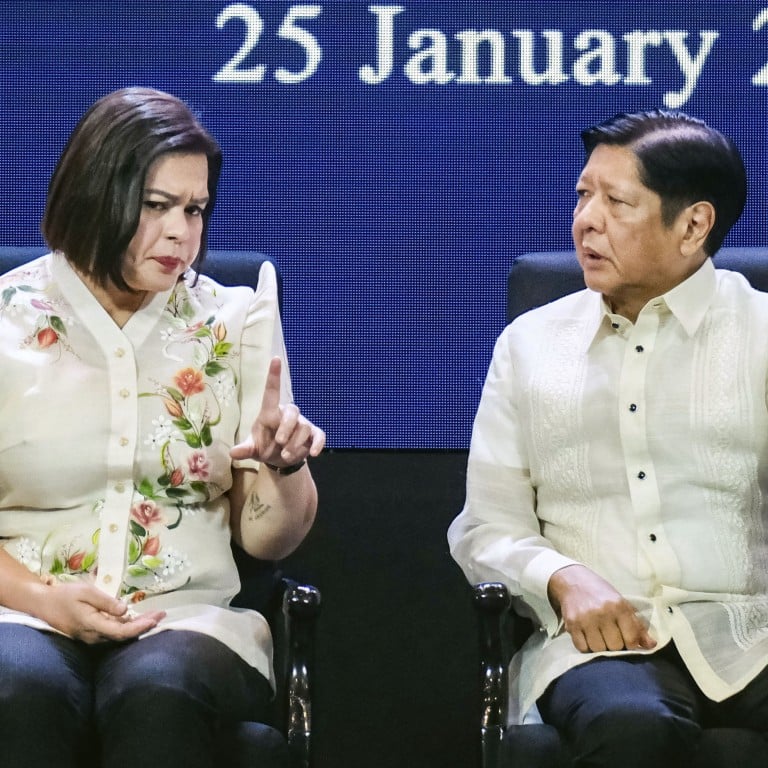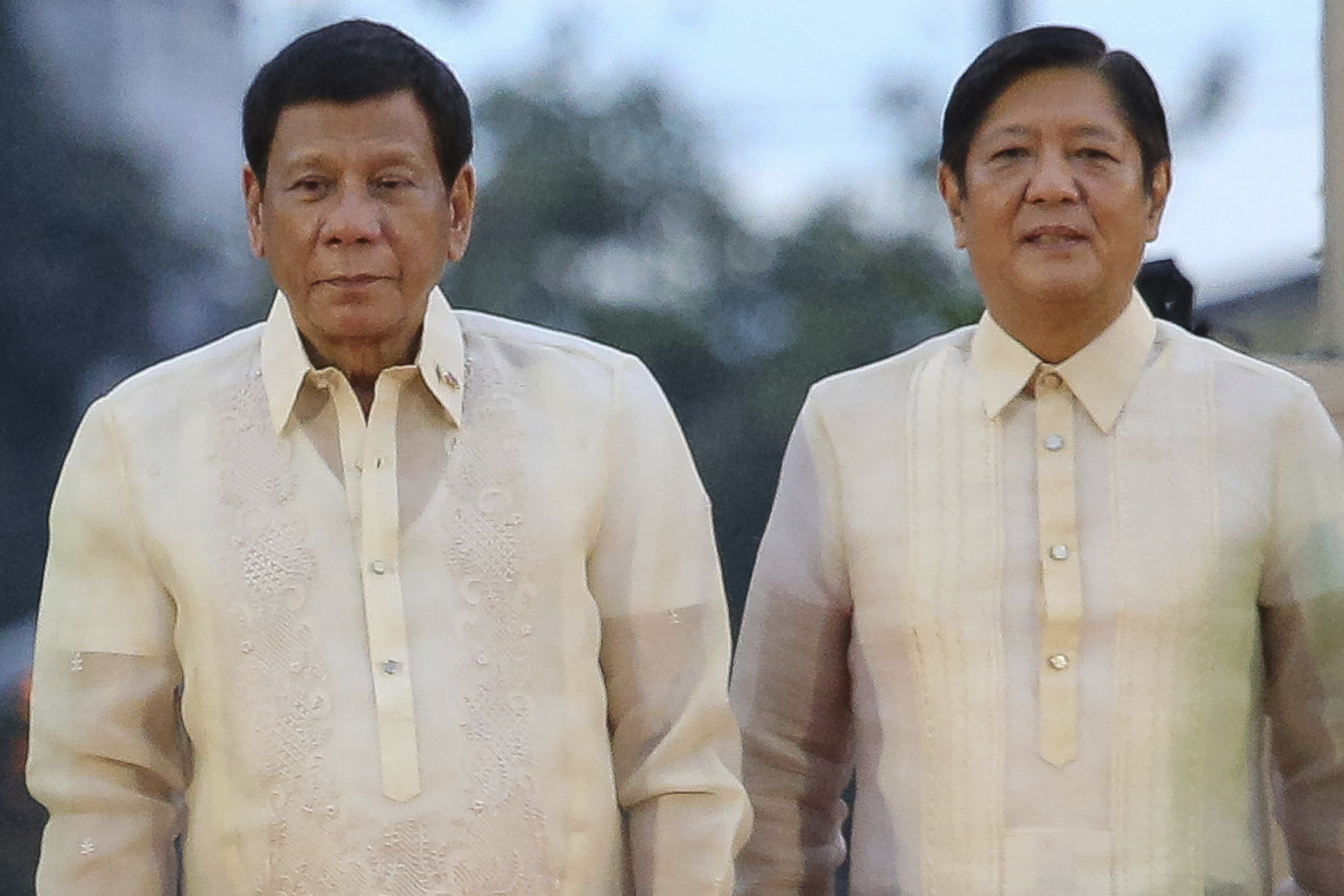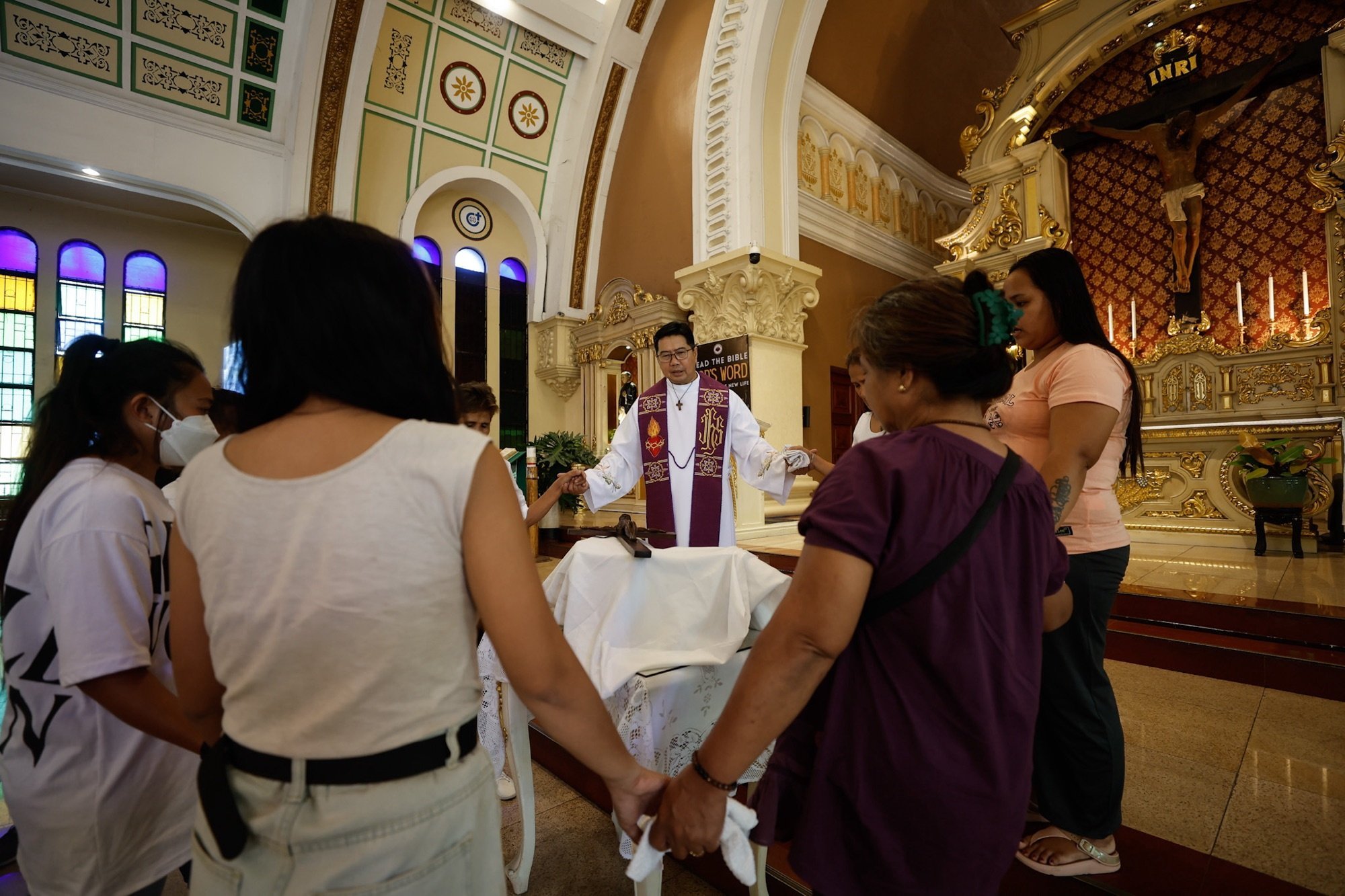
Sara Duterte for Philippine president? Poll complicates feud between Marcos Jnr and her father
- A recent poll indicates Vice-President Sara Duterte-Carpio is the most favoured potential presidential candidate for the 2028 election
- The result raises questions about how the two political clans’ spiralling row might impact President Ferdinand Marcos Jnr at the 2025 midterm elections
Vice-President Sara Duterte-Carpio ranked as the most favoured potential presidential candidate in a survey released on January 25 by independent pollster WR Numero, with 35.6 per cent. Broadcaster and senator Raffy Tulfo came in at 23 per cent, and former vice-president Leni Robredo, who was defeated by Marcos Jnr in the 2022 election, received 9 per cent in the survey, which was conducted from November to December and had more than 1,000 respondents.
Duterte-Carpio was the most preferred option across a number of demographics, including age, sex, location, socioeconomic class and gender identity. She also led among voters who said they were supporters of the current Marcos Jnr administration, and those who identified as independent. Among opposition supporters, she ranked third after Tulfo and Robredo.

Cleve Arguelles, a political scientist who is the head of WR Numero, told This Week in Asia that the incumbent vice-president’s lead in the polls was not surprising, because people see her as a natural successor to Marcos Jnr.
“By virtue of her position, people expect her to run and see her as eligible to be the next president. We often see her on television and on the radio. She has a good reach compared to the other potential presidential bets,” he said.
She also benefits from her association with two of the country’s most influential political families.
“In a country where people rely on family names as a way to make sense of different politicians and their entire electoral landscape, the Duterte brand enjoys [a positive reputation] among a good number of Filipinos, primarily because former president Duterte was one of the most popular Philippine presidents we’ve seen since the end of the Marcos dictatorship,” Arguelles said.
Are Philippines’ economic woes spilling into politics as Marcos Jnr and Duterte hurl insults at each other?
The feud is the culmination of a number of events that have escalated tensions between both families in recent months, Arguelles said.
Marcos Jnr recently backed proposals to amend provisions to the country’s 1987 constitution – introduced after his father, the dictator Ferdinand Marcos Snr, was ousted by the People Power Revolution.

As Marcos Jnr approaches only his second year in office, Duterte-Carpio’s rating in the opinion poll raises questions about how the families’ unravelling ties might impact the 2025 midterm elections.
During a state visit to Vietnam on Tuesday, Marcos Jnr said his relationship with his deputy was “exactly the same”, despite his dispute with her father, and that he would not remove her as secretary of the Department of Education in his cabinet.
On her part, Duterte-Carpio has sought to negotiate the difficult position by seemingly trying not to take sides. On Sunday, she appeared at a political rally held by Marcos Jnr in Manila, before flying later that same day to the Duterte clan’s rival rally in the family’s southern stronghold of Davao City.
While the vice-president’s poll result seemed encouraging at 35.6 per cent, Arguelles argued her popularity had actually declined from when she ran as Marcos Jnr’s running mate.
In the lead-up to the 2022 elections, Duterte-Carpio broke opinion records by polling as high as 56 per cent among voters, meaning that, “within two years, she has lost almost half of her supporters”, Arguelles suggested.
‘I was crying’: influential Philippine pastor linked to Duterte accused of rape
Despite the controversies and infighting among the country’s top political families, Arguelles said the current administration still enjoys broad popularity. His group’s survey found that 70 per cent strongly supported the current government, while 82 per cent said they had no regrets about voting for Marcos Jnr as president and 88 per cent said they did not regret casting their ballots for Duterte-Carpio.
This support underscores increasingly hardening preferences among the country’s electorate, Arguelles said, with the Dutertes and Marcoses representing similar political brands.
“Rather than candidates emphasising [platforms] such as good governance, anti-corruption, or even a stronger democracy and justice system … we’re seeing terms that we associate with the politics of former president Duterte and President Marcos Jnr, [such as] law and order, division, reduction of drugs and criminality,” he said.
While only time can tell whether the upcoming elections will swing in favour of the Marcos or Duterte families, the lack of a strong opposition figure has given both clans leeway to squabble with each other.
“There’s a kind of luxury among the administration to go against each other because they don’t have an external threat. They can waste our money, efforts and force resources to go against each other because they don’t have a common enemy yet,” Arguelles said.

